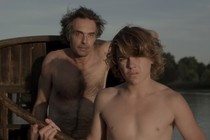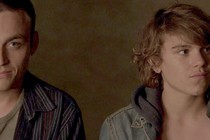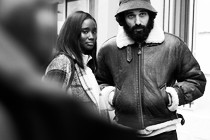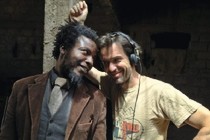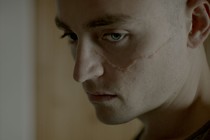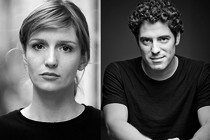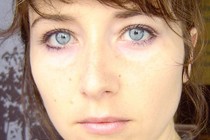Teenagers escaping from a golden cage in The Good Life
- Jean Denizot presents his first feature length film during Venice Days: a moving coming of age story inspired by a scandalous news story
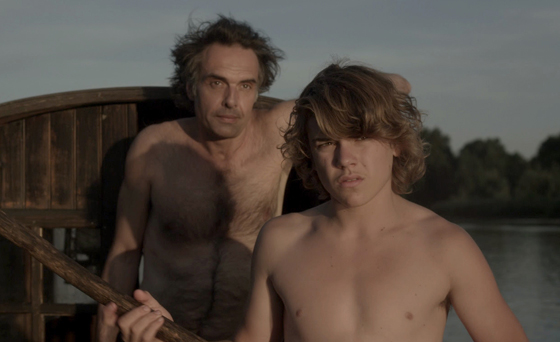
What constitutes a beautiful life for a teenager? To live immersed in nature, to be content with the most basic of met needs, with neither slave nor master? Or is it that a beautiful life is that which has not yet come? To drive a car, go out with friends, experience your first love. Those are the questions posed by Jean Denizot in his intense debut film The Good Life [+see also:
trailer
interview: Jean Denizot
film profile], presented during Venice Days at the 70th edition of the Venice Film Festival.
Sylvain (Zacharie Chasseriaud) and Pierre (Jules Pelissier), 16 and 18, seem happy. They run in fields, laugh, swim naked in cascades and do not go to school. They are free. Their freedom is just an appearance though, because in actual fact, they have been in hiding for over ten years. Their father, Yves (Nicolas Bouchaud), kidnapped them when they were 5 and 7, after their mother was given custody. Since then, they have been clandestinely living in the mountains, with fake names, as nomads. They seem happy, but they are not. Or this is the case at least for Pierre, the older of the two. When police start getting on their trails, he escapes. He is in the grips of this beautiful life, and solitude is suffocating him.
Loosely based on a story that hit news in France (the Fortin case), Denizot tells the story of Yves’ last escape. The story is marked by Sylvain meeting Gilda and falling in love. Gilda has the face of a child and the deep voice of Solène Rigot (seen in 17 girls [+see also:
trailer
film profile]), and makes Sylvain see the possibility of a different life. The girl has also been forced to grow up quickly: her father is an alcoholic and she is used to having to empty bottles out in the sink. Gilda and Sylvain share a set of carefree moments adapted to their ages: swims in the river, bicycle races. But being clandestine comes with a set of rules and in order to live a normal life, you need to come out into the open.
Through telling an incredible story (how do you pull off disappearing for ten years, kidnapped by your own parent, far from your mother and an accomplice to this choice?), The Good Life is also a coming of age tale. “To be kidnapped by your own father represents both a nightmare and a total fusion with your model,” Denizot explained. And this father’s teachings are marked by great ethics (“we do not need money” “neither slaves nor masters”). “When I heard the real life characters of this story on the radio for the first time, I was taken aback by how intelligent and cultured the two boys were, even if they had never been to school,” the director said.
"I will defend you in court,” Sylvain tells his father as he leaves. To this softly spoken, calm man, that is all that seems important: to have brought his children up with sane principles. And to have had them next to him, for so many years, at the expense of holding them in a cage, even if it was a golden one.
(Translated from Italian)
Did you enjoy reading this article? Please subscribe to our newsletter to receive more stories like this directly in your inbox.













